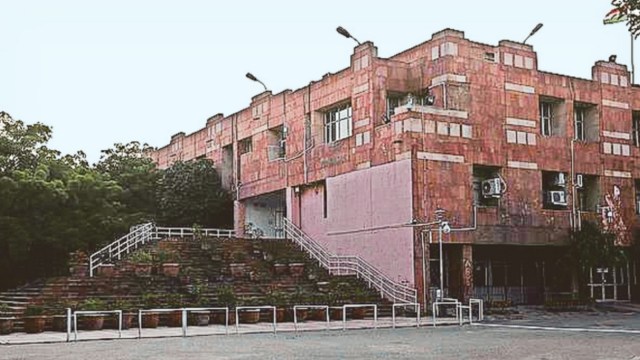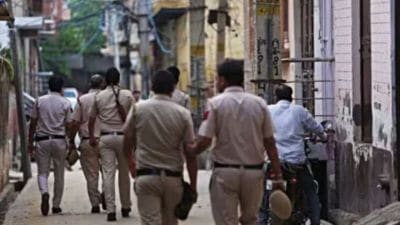‘Unauthorised absence’ during probation: Services of JNU faculty member terminated
Rohan Vekatesh Halapeti Choudhari, an assistant professor on probation at the Centre for Political Studies, had joined JNU last April. He allegedly officially availed two days of personal leave on May 16 and 17, last year.
 JNU officials, however, maintained that “decisions taken by the EC is the university’s final response”. Choudhari did not respond to calls or messages.
JNU officials, however, maintained that “decisions taken by the EC is the university’s final response”. Choudhari did not respond to calls or messages.A faculty member at Jawaharlal Nehru University (JNU) has been terminated for what the university administration described as “unauthorised absence” during his probation period. The decision taken by the university’s Executive Council on August 26 has drawn sharp criticism from the JNU Teachers’ Association (JNUTA), which called the termination “illegal and barbaric”.
Rohan Vekatesh Halapeti Choudhari, an assistant professor on probation at the Centre for Political Studies, had joined JNU last April. He allegedly officially availed two days of personal leave on May 16 and 17, last year. However, he only returned to work on July 8, after 51 days, which also included vacations that could be availed by JNU faculty members. During this period, he had only informed the JNU chairperson over the phone about extending his leave.
In an email written on July 5, 2024, Choudhari allegedly admitted to misreading the academic calendar and cited a family emergency for his prolonged absence. “It was a serious oversight compounded by my limited familiarity with the university’s procedures,” he wrote, adding that he was taking steps to prevent such errors. He also submitted medical documents relating to the illnesses of his son and father-in-law, but the same were not accepted by JNU authorities.
On January 17, this year, Choudhari sought to adjust a part of his 51-day leave as Earned Leave. The JNU administration, however, directed that a showcause notice be issued to him. The notice was formally sent on August 1, and Choudhari’s reply was deemed unsatisfactory.
After granting Choudhari a personal hearing on August 20, the committee concluded that he had violated leave and the Central Civil Services (Conduct) Rules, and recommended disciplinary action against him.
JNUTA, meanwhile, has strongly opposed the decision, arguing that “no case ever existed for any kind of disciplinary action… let alone such a severe one as termination”. It alleged the move was driven by “the settling of a personal score” and described the process as “pockmarked with illegality after illegality, and outright falsities”.
Expressing solidarity with Choudhari, JNUTA pledged to fight for the unconditional withdrawal of the order. “This episode should serve as an additional reason to stand up in defence of a young colleague and for the larger issues related to the future of the University,” it added.
JNU officials, however, maintained that “decisions taken by the EC is the university’s final response”. Choudhari did not respond to calls or messages.







